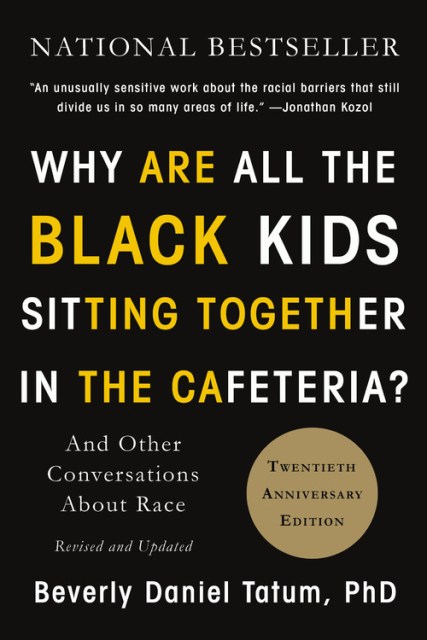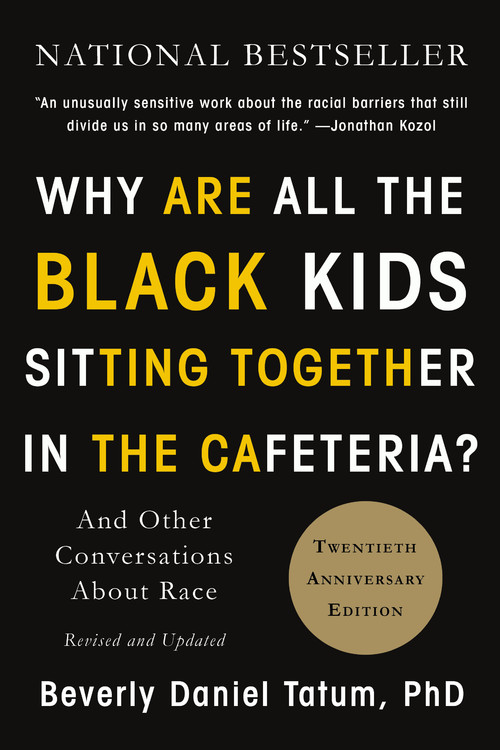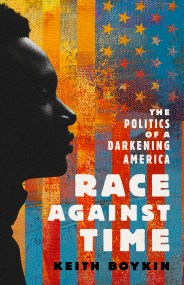Promotion
Use code BESTBOOKS24 for 25% off sitewide + free shipping over $35
By clicking “Accept,” you agree to the use of cookies and similar technologies on your device as set forth in our Cookie Policy and our Privacy Policy. Please note that certain cookies are essential for this website to function properly and do not require user consent to be deployed.
Why Are All the Black Kids Sitting Together in the Cafeteria?
And Other Conversations About Race
Contributors
Formats and Prices
Price
$21.99Price
$28.99 CADFormat
Format:
- Trade Paperback (Revised) $21.99 $28.99 CAD
- ebook $16.99 $21.99 CAD
- Audiobook Download (Unabridged)
This item is a preorder. Your payment method will be charged immediately, and the product is expected to ship on or around September 5, 2017. This date is subject to change due to shipping delays beyond our control.
Also available from:
Walk into any racially mixed high school and you will see Black, White, and Latino youth clustered in their own groups. Is this self-segregation a problem to address or a coping strategy? How can we get past our reluctance to discuss racial issues?
Beverly Daniel Tatum, a renowned authority on the psychology of racism, argues that straight talk about our racial identities is essential if we are serious about communicating across racial and ethnic divides and pursuing antiracism. These topics have only become more urgent as the national conversation about race is increasingly acrimonious. This fully revised edition is essential reading for anyone seeking to understand dynamics of race and racial inequality in America.
-
"We don't talk about race in America, but we must start if we are going to heal this broken country--and Beverly Tatum's book is exactly the conversation opener we should be using."Jodi Picoult, #1 New York Times bestselling author of Small Great Things
-
"Why Are All the Black Kids Sitting Together in the Cafeteria? is an unusually sensitive work about the racial barriers that still divide us in so many areas of life. This is a valuable book by a fine psychologist who knows how to listen to young people."Jonathan Kozol, author of Amazing Grace
-
"Why Are All the Black Kids Sitting Together in the Cafeteria was a landmark publication when it appeared in 1997. Twenty years later this updated edition is as fresh, poignant and timely as ever."Earl Lewis, President, the Andrew W. Mellon Foundation
-
“This book should be required reading for every American.”Kathleen McCartney, president, Smith College
-
“We read the original version of this book twenty years ago and learned a great deal about race, racism, and human behavior. This updated version provides even more insights about the racial, ethnic, and cultural challenges we face in American society, and particularly in higher education.”Freeman A. Hrabowski III, president, University of Maryland, Baltimore County
-
“Just as this experienced psychologist and wise educational leader reminds us here that we cannot talk meaningfully about racial identity without talking about racism, so too must we learn from her words about how to talk and teach and dialogue across those boundaries, in the hopes of better realizing the potential of our diverse democracy.”Nancy Cantor, chancellor, Rutgers University-Newark
-
“Beverly Daniel Tatum shows great depth and sensitivity in this thoughtfully enlightened book about the subtleties of racial interactions in America.”Alvin F. Poussaint, M.D., Harvard Medical School
-
“A commonsense manual on understanding some of the social dynamics at work in society.”Milwaukee Journal Sentinel
-
“A comprehensive recipe for how one can become an ‘anti-racist.’”—Build Magazine
-
“A remarkably jargon-free book that is as rigorously analytical as it is refreshingly practical and drives its points home with a range of telling anecdotes.”Kirkus Reviews
- On Sale
- Sep 5, 2017
- Page Count
- 464 pages
- Publisher
- Basic Books
- ISBN-13
- 9780465060689
Newsletter Signup
By clicking ‘Sign Up,’ I acknowledge that I have read and agree to Hachette Book Group’s Privacy Policy and Terms of Use







